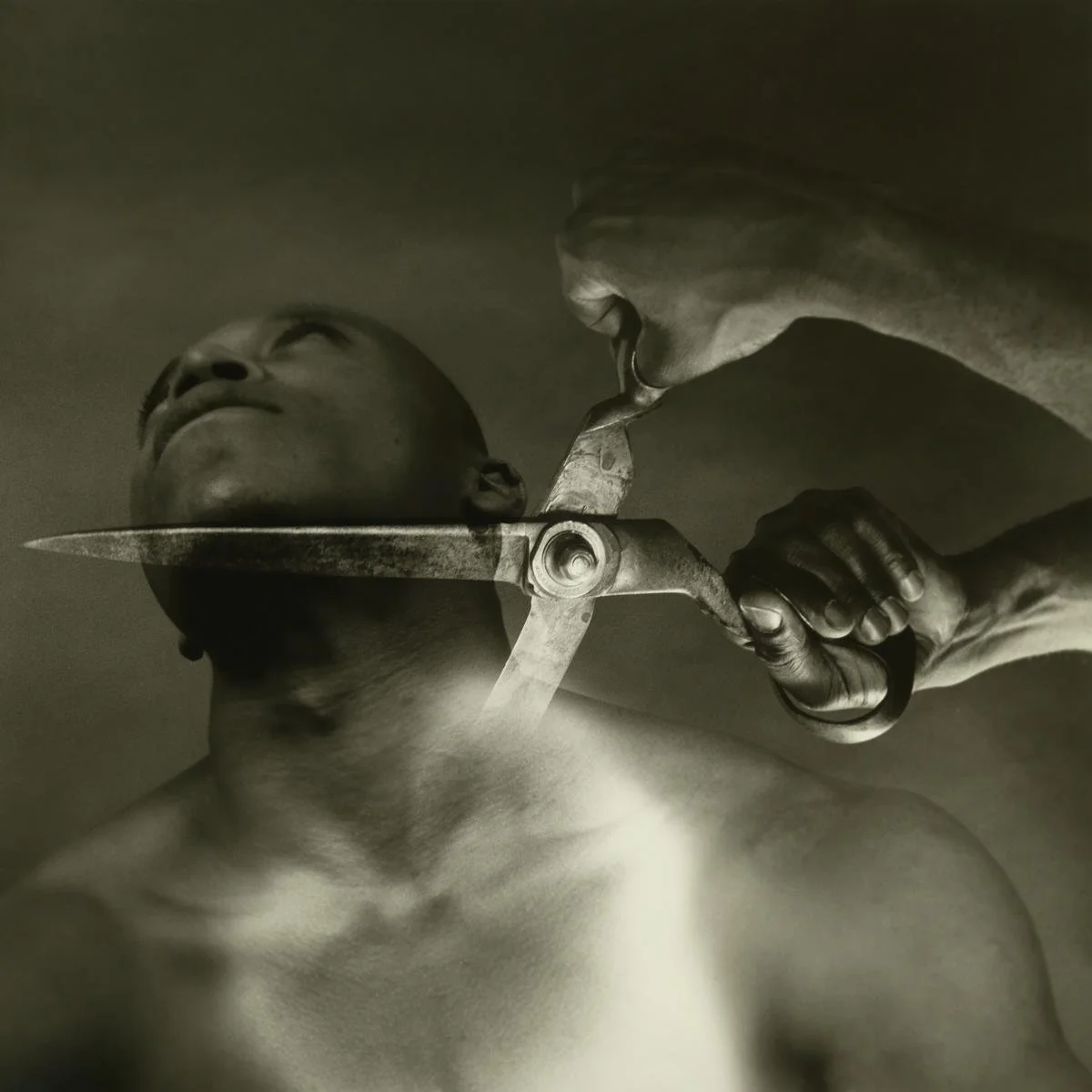ROTIMI FANI-KAYODE, SELECTED WORKS
“Rotimi Fani-Kayode was born in 1955 in Lagos, Nigeria. His father was a politician and chieftain of Ife, the ancestral Yoruba capital. In 1966, amid the Nigerian Civil War, 11-year-old Fani-Kayode moved with his family to Brighton, England. He went to the United States to study at Georgetown University and, later, at the Pratt Institute, where he earned an MFA in 1983. Fani-Kayode then returned to England to pursue photography. He also helped to found the organization Autograph: Association of Black Photographers.
Working during the height of the AIDS crisis and responding to the homophobia of both Thatcherite England and his home country of Nigeria, Fani-Kayode produced images that exalt queer black desire, call attention to the politics of race and representation, and explore notions of cultural identity and difference. He wrote, “On three counts I am an outsider: in matters of sexuality; in terms of geographical and cultural dislocation; and in the sense of not having become the sort of respectably married professional my parents might have hoped for.”
Fani-Kayode combined African and European iconography in his work as a way to contest the marginal status of Yoruba thought and explore the vexed position of the black body in the Western imaginary. In the photograph Adebiyi (ca. 1989), the subject holds a mask featuring the stripes of Eshu, the trickster god of Yoruba mythology. Yet the mask is not traditional or “authentic” in form but a cast, transformed into an ironic, mocking signifier of African “otherness” that subverts the Primitivist tropes of European modernism. In other images, omens of death, such as hooded figures, comingle with explicit eroticism. Untitled (ca. 1989) takes on a lush, baroque sensibility, depicting two men draped in rich velvet fabric, sensuously embracing in dramatic chiaroscuro with their face averted from the viewer. By capturing such moments of intimacy and communion, Fani-Kayode presented queer sexuality as an act of healing, even as a means of personal and political survival.
Fani-Kayode died in December 1989 at the age of 34.” - Guggenheim











